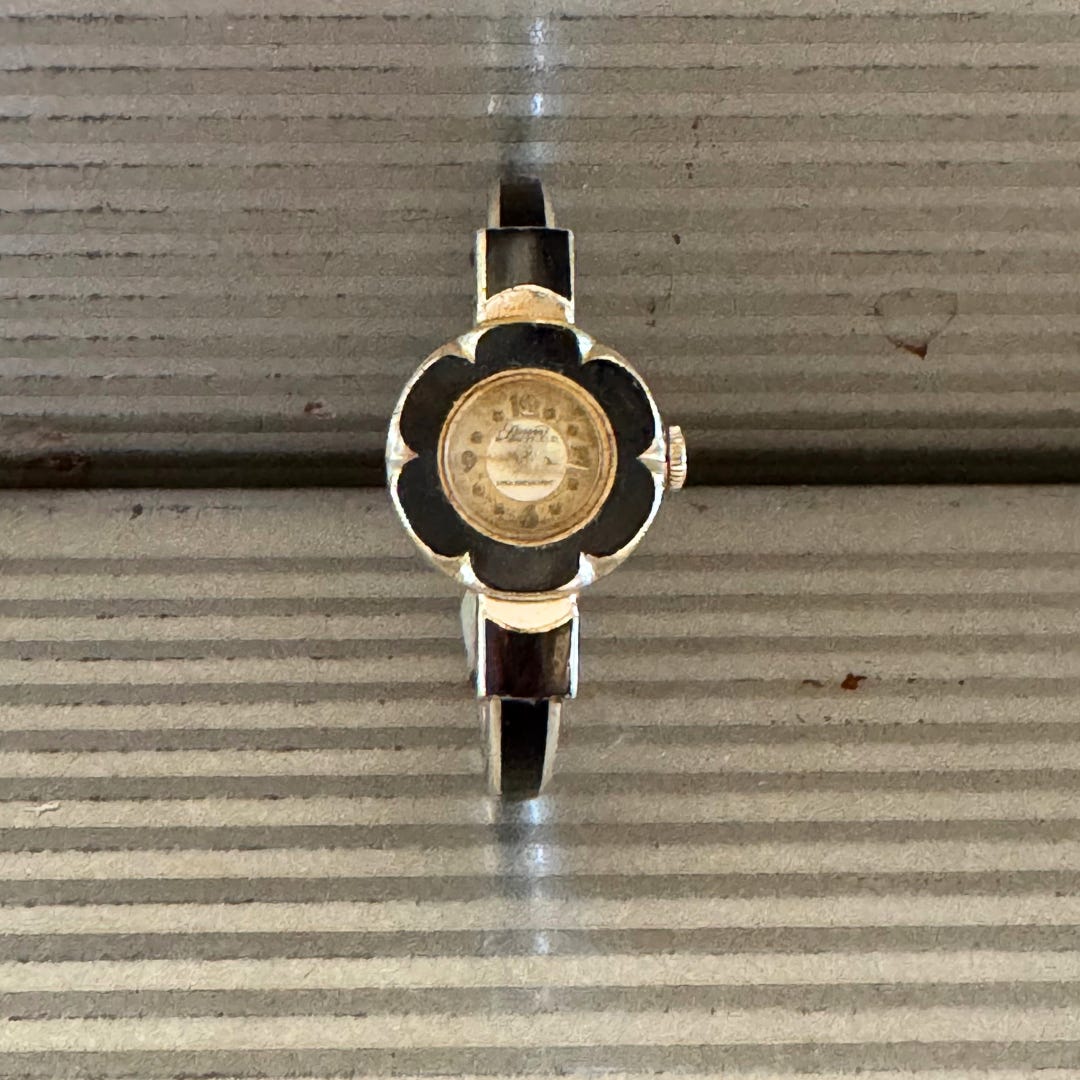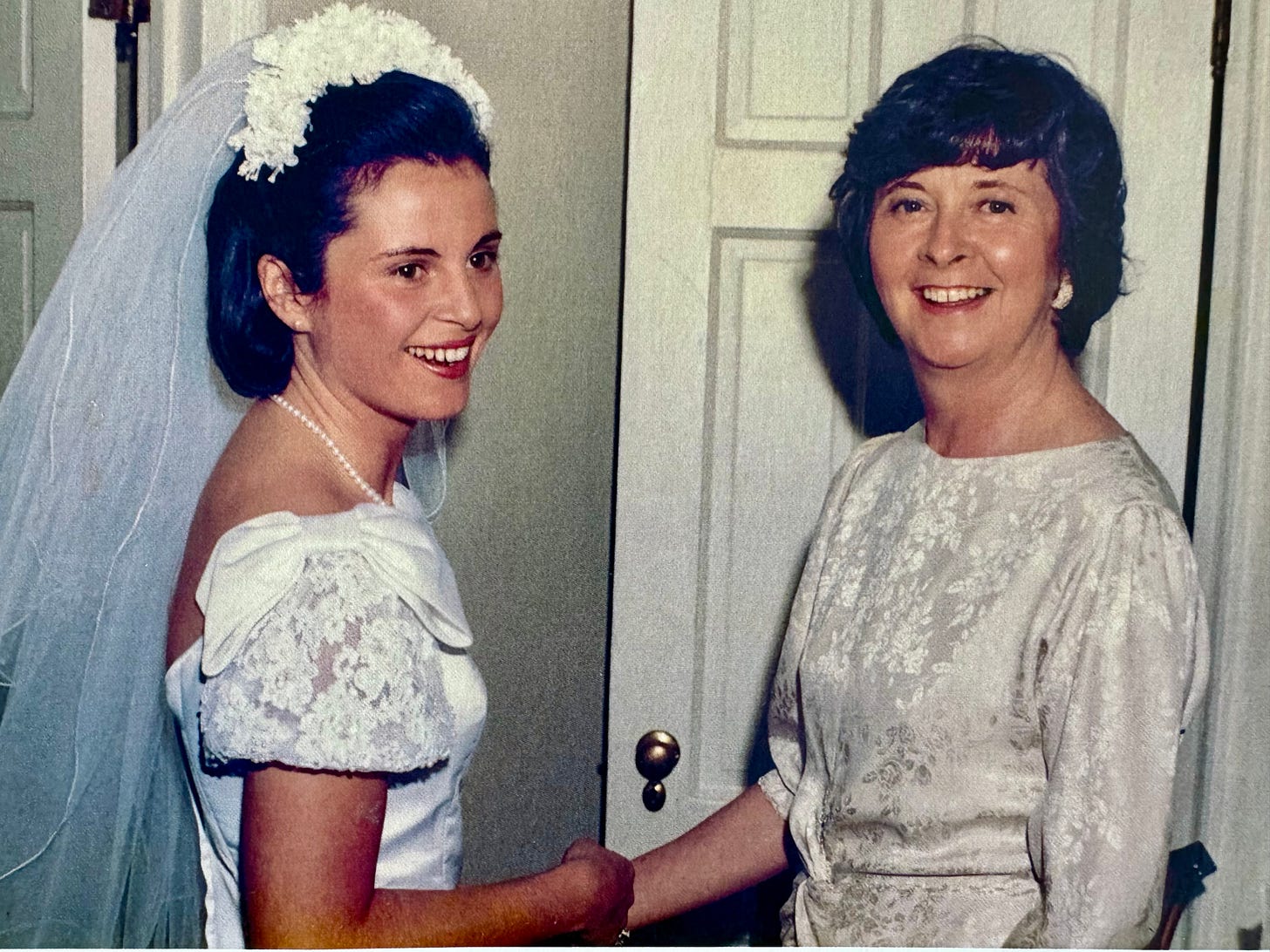THE WATCH
“I put the expensive pieces aside and kept this.”
When I was 15, my mom went to work as an assistant to a book publisher after many years at home raising three kids. She didn’t feel she had a choice: My dad had lost his big Park Avenue job and the several stopgap jobs that came after. Money for a bathroom renovation had run out at the stripped-to-studs stage, our driveway was a mess of buckled asphalt, the gardens had literally gone to seed and every week people called the house about unpaid bills. Yet despite the obvious necessity for at least one paycheck, being employed was on my traditional Italian-American father’s long list of things no wife of a successful man should do.
My parents grew up in New Haven, CT, in the 1930s and ‘40s, a time when Catholic immigrants from Italy, Ireland and Poland worked hard to make a living in blue-collar trades, while descendants of the city’s early Protestant settlers looked down on them and referred to them with ethnic slurs. My dad’s “less than” insecurities ran deep. Though he felt he “married up” with an Irish-American wife and though he rose to be head of sales at a prominent company, he had a permanent chip on the shoulder of his Brooks Brothers suit. He was engulfed by paranoia that he was being judged by everyone, everywhere, all the time.
It didn’t help that we lived in an affluent town where, in the 1970s, very few women worked outside the home. It was a badge of honor for men to provide fully for their families. As a young woman, Mom had been happy to join this club, believing a husband was her ticket to lifelong financial security. While dating my dad, she was too focused on having fun to see cause for alarm in the fact that he’d dropped out of both Yale and UConn and had driven a sign-painting business into the ground. But to her credit, when she finally realized she’d staked her future to a man who would not get out of his own way, she got down to business herself.
One day shortly after she started working, I got home from school and heard a cough coming from my parents’ bedroom. Knowing Dad kept up the 9-to-5 facade planning job searches in his car, I assumed Mom had come home early. But when I went to say hi, there he was, sitting in a chair, staring out the window.
“What’s wrong?” I said.
“Your mother bought a watch.”
I understood immediately that it was a compound transgression: not just making her own money, but daring to spend it.
“I’m supposed to buy everything for her,” he said, “and she’s buying things behind my back.”
He asked her not to keep working, not to buy things for herself or the family, not to make people think he was unable to provide. But she never did stop working. As the years ticked by, she pushed herself a little more and then a little more. Going from simple administrative jobs to a bona fide career, she built a thriving business teaching English as a second language. Her income supported our family and nurtured her independence. And slowly my father retreated, relinquishing power as she gained strength. Though she never left her marriage, she left him far behind, always wearing the slender watch that spurred her forward.
But while financial freedom gave Mom peace, decades of stress with a controlling husband took a toll. After 36 years of marriage, during what would be their final argument, her aorta burst. A few hours later, she was gone. She was only 60. And my father inherited the money she had so proudly and painstakingly earned herself.
When it came time to go through her jewelry, I could have chosen the long gold necklace my grandmother had given her or the pearl earrings that had once belonged to a beloved aunt. But I put the expensive pieces aside and kept this simple watch with the metal band—the most valuable asset in my mother’s reclaimed life.
—Kathryn Sollmann
Kathryn Sollmann, a career coach and mother of two adult daughters, has been happily married for 40 years. Her second book, The 4 Jobs Club: How Smart Women Care for It All—Kids, Aging Parents, Home & Career, was published in January.
For a different reading experience, The Keepthings’ stories can also be read in their entirety on Instagram @TheKeepthings.
Have a story to share? See the complete submission guidelines, including photo guidelines, at TheKeepthings.com.




A tribute to overcoming patriarchal constraints and a very timely one.
What a lovely story. You bring such clarity to your reasons for choosing your mother's watch over jewelry with higher monetary value...your mother raised you with fine values!